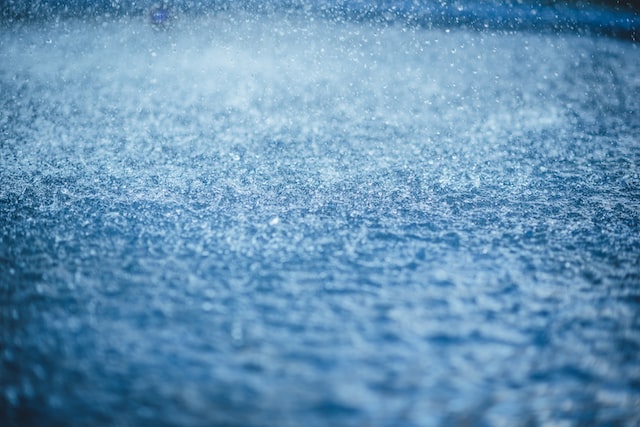Coquitlam, B.C. – Coquitlam is making progress on improving water quality and sewer system performance in the Stoney Creek watershed through a multi-faceted, cooperative approach.
In-creek water quality monitoring, added sewer capacity and public outreach are among the many City initiatives targeting the shared watershed, which spans 28 square kilometres through parts of Coquitlam, Port Moody and Burnaby and is home to salmon and endangered Nooksak dace.
Coquitlam’s segment of Stoney Creek is in Burquitlam’s Oakdale area. The three cities and Metro Vancouver manage the watershed collaboratively as well as individually within their own jurisdictions.
Water Quality Enhancements
Coquitlam has a variety of policies and procedures to protect the creek’s water quality, including development site patrols, stormwater runoff and spill response guidelines, stop-work orders, and testing through two permanent in-creek monitoring stations and five sanitary flow monitors.
Recent activities have included:
- More patrols of development sites with new bylaw requirements for real-time erosion and sediment monitoring and control, as well as in-creek devices that monitor water quality in real time;
- An additional environmental worksite compliance specialist starting in 2023; and
- Trail cameras to watch for illegal spills and aid in faster response.
Coquitlam has also approved $400,000 for Stoney Creek enhancements in 2023, where staff are evaluating the feasibility and cost of including a drainage treatment system to guard against illegal spills in a 104-acre (42-hectare) area near Oakdale Park and into Burnaby.
Protecting the Sewer System
Aging sewer systems – more common in established neighbourhoods like Burquitlam – are more prone to inflow and infiltration (I&I), the term for when water enters the sewer system through damaged sewer mains, pipes and other fixtures, or improperly-connected drains on private properties.
Exacerbated by extreme weather, inflow and infiltration can lead to sewer backups, basement flooding, overflow into streams and higher sewer treatment costs.
Coquitlam has successfully reduced inflow and infiltration by about 35 per cent through its extensive program to identify and repair City infrastructure, locate improper private connections, encourage homeowner upgrades, and ensure aging sewer services are replaced during development.
Recent achievements have included:
- A new diversion sewer providing additional capacity during extreme weather, cost-shared with Burnaby, Port Moody and Metro Vancouver;
- New grants of up to $2,000 to help homeowners replace their aging sewer connections;
- Replacement of an aging clay sewer on North Road and Como Lake Avenue; and
- The best-ever recorded coho salmon return in 2022.
Upcoming work includes hiring a dedicated contractor to support homeowners replacing their sewer connections, and working with Metro Vancouver to accelerate a regional trunk sewer project.
Improved Engagement and Public Education
Spanning three cities and thousands of private properties, the health of Stoney Creek watershed is a shared responsibility between governments and community members.
As well as working collaboratively with Burnaby, Port Moody and Metro Vancouver staff, Coquitlam has been increasing public education and awareness through initiatives such as:
- An Adopt-a-Catch Basin program, through which volunteers monitor almost 600 catch basins;
- Educating restaurants and food trucks on proper oil and grease disposal;
- Informing homeowners about their sewer system responsibilities and available supports;
- Storm-drain marking in collaboration with the Oakdale Neighbourhood Association;
- Direct communications with the Oakdale Neighbourhood Association, Stoney Creek Environment Committee and Stoney Creek Environmental Working Group; and
- A dedicated webpage at www.coquitlam.ca/stoneycreek.
Upcoming work includes targeted communications to homeowners about the City’s private sewer connection grants and supports.
A Commitment to Water Quality
The various enhancements to Stoney Creek dovetail with the City’s commitment to protect local watersheds, demonstrated by activities such as the implementation of Integrated Watershed Management Plans across Coquitlam and more than two dozen water-management actions in the new Environmental Sustainability Plan.
According to regular monitoring, 95 per cent of all Coquitlam watershed water quality samples meet or exceed health guidelines.
Property Owner Sewer Responsibilities
About half of the City’s sewer system is located on private property. Property owners are responsible for maintaining the sewer infrastructure on their land, including fixing or replacing old or damaged pipes and making sure roof and foundation drains are properly connected.
Property owners are encouraged to:
- Have pipes inspected with a camera by a plumber or drainage specialist at least once a decade;
- Ensure roof and foundation drains are not connected to the sanitary sewer line;
- Avoid planting water-loving trees and shrubs on top of sewer lines or drain pipes, where roots could cause damage; and
- Keep catch basins near their property free of leaves and debris, or sign up for the City’s Adopt-a-Catch Basin volunteer program to help ensure only rain goes down the drain (learn more at www.coquitlam.ca/adoptacatchbasin).









